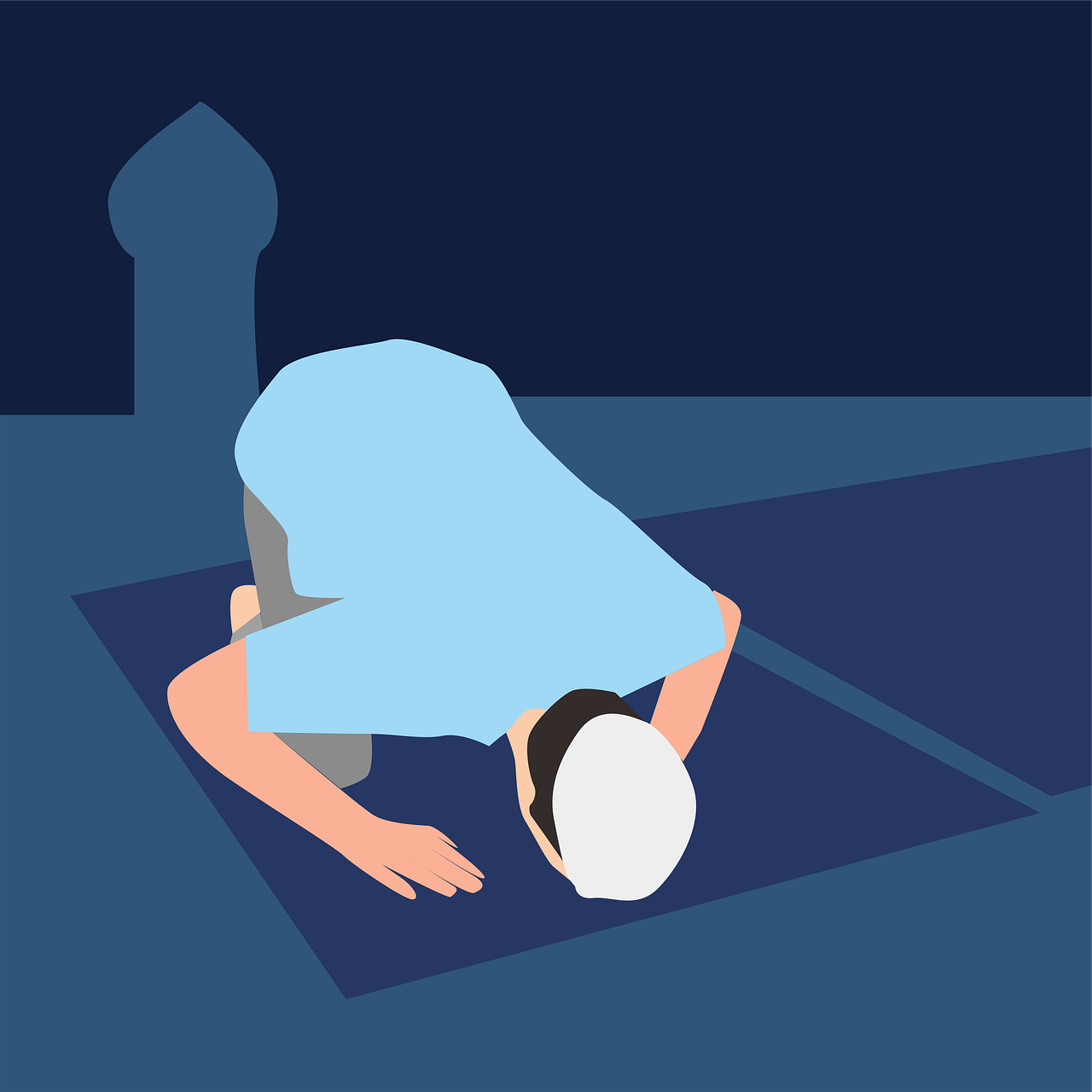Salah (prayer) is one of the most powerful and beautiful acts of worship in Islam. It is not only a duty but also a divine gift — a daily meeting between a servant and their Creator. For Muslims around the world, Salah forms the heartbeat of faith, reminding them five times a day of their purpose, discipline, and connection with Allah.
But beyond being an obligation, Salah holds immense spiritual rewards that touch every aspect of a believer’s life — from inner peace to divine blessings, from purification of the heart to the strengthening of one’s soul.
In this article, we’ll explore seven profound spiritual benefits of Salah and how regular prayer transforms the believer’s heart and life.
1. Salah Strengthens the Connection with Allah
At its core, Salah is a direct conversation between a believer and Allah. It is the moment when one stands before the Almighty, leaving behind the noise of the world to speak directly to their Lord.
When a Muslim prays, they say “Allahu Akbar” — declaring that Allah is greater than everything else. This simple phrase resets the heart, reminding it that no worldly problem or desire is greater than Allah’s mercy and power.
The Prophet Muhammad (peace be upon him) said:
“When one of you stands in prayer, he is speaking privately to his Lord.”
(Sahih Bukhari)
Each prayer strengthens the spiritual bond between the servant and the Creator. Over time, this connection builds faith (iman), removes doubt, and fills the heart with love and dependence on Allah.
2. Salah Purifies the Heart and Soul
Salah is not just an act of the body; it is a purification of the soul. The Prophet ﷺ compared Salah to a river that cleanses a person from sins.
He said:
“If there was a river at the door of one of you and he bathed in it five times a day, would you notice any dirt on him?”
The companions replied, “None at all.”
The Prophet ﷺ said, “That is the likeness of the five prayers; Allah wipes away sins by them.”
(Sahih Muslim)
Each prayer washes away the stains of the day — mistakes, distractions, and sins. Just as water cleans the body, Salah cleans the heart.
When one stands humbly before Allah, recites His words, and bows in submission, the heart becomes softer, more mindful, and more inclined toward goodness. This purification allows the believer to live a life of sincerity and righteousness.
3. Salah Brings Inner Peace and Reduces Anxiety
In the fast-paced world of stress, social pressure, and endless distractions, many seek peace but find it hard to maintain. Salah is the ultimate source of inner tranquility (sukoon).
During prayer, the believer disconnects from worldly concerns and reconnects with divine calmness. The rhythmic movements, recitations, and moments of stillness all serve as a spiritual therapy for the heart.
Allah says in the Qur’an:
“Verily, in the remembrance of Allah do hearts find rest.”
(Surah Ar-Ra’d 13:28)
Each prayer is an opportunity to reset the mind and heart, to let go of worries, and to remember that everything is in Allah’s control. Those who pray regularly often report feeling less anxious and more spiritually grounded — because they constantly turn to the One who controls all affairs.
4. Salah Builds Discipline and Spiritual Consistency
One of the greatest benefits of Salah is that it teaches discipline and time management. Performing five prayers daily requires consistency, planning, and commitment — values that carry over into every other aspect of life.
A believer who rises for Fajr, despite the comfort of sleep, demonstrates self-control and spiritual strength. This consistency develops taqwa (God-consciousness) and trains the believer to resist laziness and temptation.
Salah acts as a daily reminder that faith is not just a feeling — it is a commitment. The discipline of prayer helps believers live productive, balanced, and meaningful lives centered on Allah’s remembrance.
5. Salah Shields from Sin and Immorality
Regular prayer is one of the strongest protections against sinful behavior. Allah clearly states in the Qur’an:
“Indeed, prayer prohibits immorality and wrongdoing.”
(Surah Al-Ankabut 29:45)
When performed sincerely, Salah keeps the heart alive and aware. A person who prays regularly becomes more mindful of their actions, knowing they stand before Allah multiple times a day.
This awareness builds moral strength and reduces the temptation to engage in wrongdoing. It’s not that a believer never makes mistakes, but prayer continually brings them back to repentance and righteousness.
The more one prays, the more distant sin becomes. Salah serves as a spiritual shield, guarding the believer’s faith, intentions, and behavior.
6. Salah Increases Gratitude and Humility
In a world that often encourages arrogance and self-centeredness, Salah reminds the believer of their true position — a humble servant before the Creator. Each movement of prayer symbolizes submission: standing in respect, bowing in reverence, and prostrating in complete surrender.
The act of sujood (prostration) — placing the forehead on the ground — is the most humble position a human can take, yet it is the closest one can be to Allah. The Prophet ﷺ said:
“The closest that a servant comes to his Lord is when he is prostrating.”
(Sahih Muslim)
Salah teaches gratitude by constantly reminding believers of Allah’s blessings — health, time, guidance, and life itself. When one reflects on these blessings during prayer, gratitude naturally fills the heart.
Grateful hearts are peaceful hearts. Through Salah, humility and thankfulness become a natural part of one’s spiritual personality.
7. Salah Brings Divine Light and Blessings into Life
The Prophet Muhammad ﷺ described Salah as a light (nur) for the believer. It illuminates the heart, mind, and path of a person.
“Prayer is light.”
(Sahih Muslim)
This light manifests in many ways: a sense of clarity, inner strength, wisdom in decisions, and divine blessings in life. The one who prays regularly often experiences Allah’s help in unseen ways — opportunities open, difficulties ease, and hearts soften.
Salah attracts barakah (blessing) in time, work, and relationships. Even when life seems uncertain, the believer who prays finds themselves surrounded by Allah’s mercy and guidance.
The light of Salah extends beyond this world — it will also shine on the Day of Judgment, guiding the believer toward Jannah (Paradise).
Conclusion: Salah — The Soul’s Lifeline
Salah is far more than a ritual; it is the soul’s daily nourishment and the believer’s strongest connection with Allah. It nurtures the heart, purifies the mind, and brings divine peace that cannot be found elsewhere.
To summarize, the seven spiritual rewards of Salah are:
- Strengthening the connection with Allah
- Purifying the heart and soul
- Bringing inner peace and reducing anxiety
- Building discipline and spiritual consistency
- Protecting from sin and immorality
- Increasing gratitude and humility
- Bringing divine light and blessings
When performed with sincerity, focus, and love, Salah transforms a person from within. It turns ordinary moments into sacred encounters with the Divine.
So, if you seek peace, guidance, and closeness to Allah, make Salah your companion — not just a duty, but a cherished gift.
“Guard strictly the prayers, especially the middle prayer, and stand before Allah with devotion.”
(Surah Al-Baqarah 2:238)
Through Salah, hearts find peace, souls find strength, and believers find their path back to Allah — again and again, five times a day.




